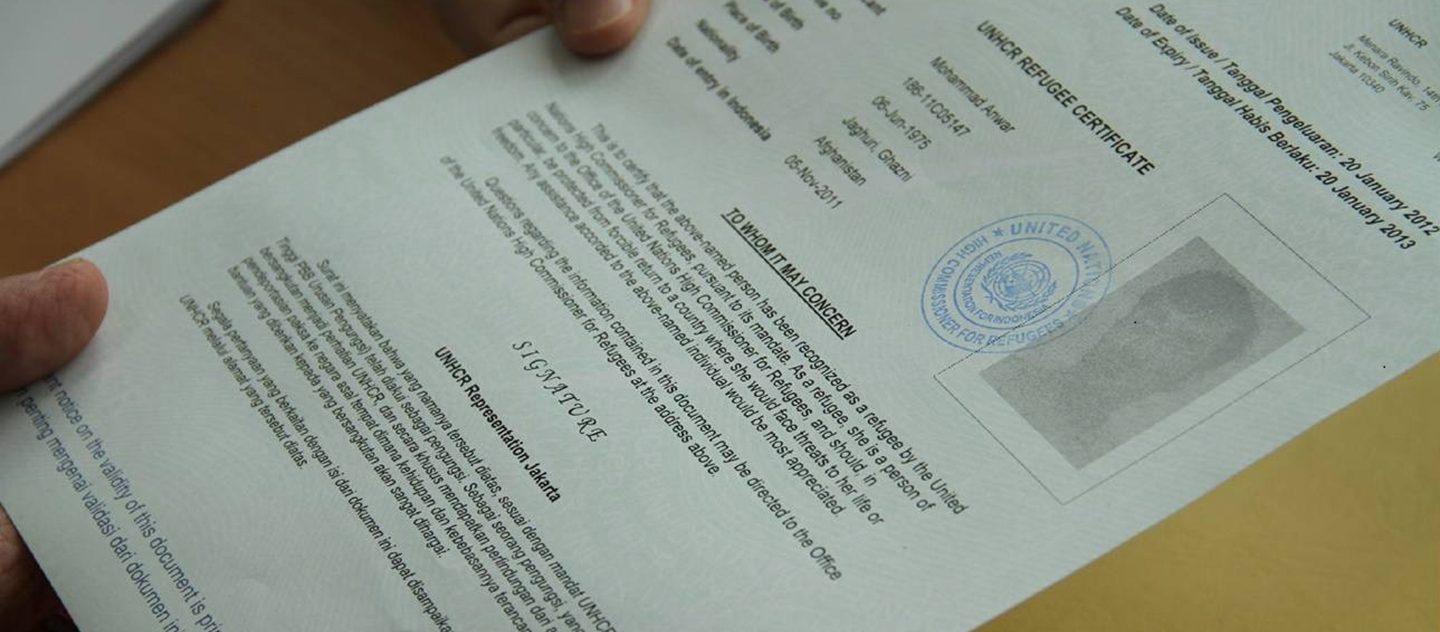The UNHCR carries out a thorough Refugee Status Determination (RSD) procedure, which starts with registration of asylum-seekers to collect basic biodata, photographs, iris scans, and a summary of the individual’s reasons for leaving their home country to seek international protection. Following registration and issuance of individual documentation, UNHCR conducts detailed interviews with each individual asylum-seeker accompanied by a qualified interpreter. This process assesses the individual’s credibility and provides a reasoned decision as to whether the individual qualifies for refugee status under UNHCR’s mandate because of a well-founded fear of persecution on account of race, religion, nationality, membership in a particular social group, or political opinion. The procedure includes an assessment of potential exclusion, in which UNHCR determines whether an individual who is otherwise qualified for refugee status might be undeserving of international protection because he or she committed crimes against humanity, war crimes, serious non-political crimes, or crimes that are contrary to the principles of the United Nations. For those who are initially found not to be refugees, the procedure allows the individual an opportunity to appeal that decision.
As of July 2020 there are 3,375 asylum-seekers and 10,278 refugees under the protection of UNHCR in Indonesia.

